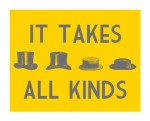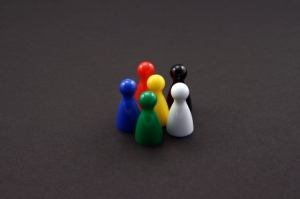SPIRITUAL NOTES TO MYSELF
Hugh Prather, whom the New York Times has called “an American Kahil Gibran”, wrote a book with the title of today’s blog. In it, are anecdotes, observations, and spiritual wisdom that Prather has collected and absorbed for himself in over 30 years as minister, lecturer, and counselor.
You may have notebooks or quotes on your memo board that speak poignantly to your heart. Or perhaps, they are there in way as a reminder for spiritual or emotional hopes you have…the person you would like to be at your best.
Also, there are literally thousands (probably more like millions) of books on meditation, prayer, affirmation, every religion since the dawn of time, and spirituality…practices, techniques, and thoughts.
I have more than a few of them myself. I also keep several notebooks full with quotes, ideas, and prayers that inspire, teach, or bring comfort to me.
However, I tack a few up on my cork board beside my writing desk for several months at a time. After absorbing their wisdom, I rotate in fresh ones . Here’s what’s up there right now:
 “I will not die an unlived life. I will not live in fear of falling or catching fire. I choose to inhabit my days, to allow my living to open me, to make me less afraid, more accessible, to loosen my heart until it becomes a wing, a torch, a promise. I choose to risk my significance, to live so that which came to me as seed goes to the next as blossom, and that which came to me as blossom, goes on as fruit.” – Dawna Markova
“I will not die an unlived life. I will not live in fear of falling or catching fire. I choose to inhabit my days, to allow my living to open me, to make me less afraid, more accessible, to loosen my heart until it becomes a wing, a torch, a promise. I choose to risk my significance, to live so that which came to me as seed goes to the next as blossom, and that which came to me as blossom, goes on as fruit.” – Dawna Markova
“For things that you believe in, pray like a preacher but fight like the Devil”.
“If we hold resentments toward the people who let us down, we’ll be exhausted. It’s better to focus on the ones who have been there for us”.
The content of two fortune cookies are pinned up there: “Everybody feels lucky for having you as a friend” AND “We are made to persist. That’s how we find out who we are”.
 “In spite of illness, in spite even of the archenemy sorrow, one can remain alive long past the usual date of disintegration if one is unafraid of change, insatiable in intellectual curiosity, interested in big things, and happy in small ways.”- Edith Wharton
“In spite of illness, in spite even of the archenemy sorrow, one can remain alive long past the usual date of disintegration if one is unafraid of change, insatiable in intellectual curiosity, interested in big things, and happy in small ways.”- Edith Wharton
A note that my beloved Dad (who tragically died too young) had written me many years ago:
“In case you’re depressed today and feeling lonely: You are pretty! You are smart! You are vivacious! You have a warm smile! You have an interesting personality! You are a little wacky! Five out of six ain’t bad, Love, Dad xxx”
These thoughts make me laugh, give me a spiritual shot in the arm, and keep me reaching towards my Higher Self, the one God wants for me.
 These are fitting thoughts as my little/big chicks fly the summer coop: one off to another year of college in Rhode Island, one on a year’s adventure, first in Paris and then to Senegal, and the “baby”, 6’1″, driving a car, writing his own music, towering over me, teasing me, “his little mama”.
These are fitting thoughts as my little/big chicks fly the summer coop: one off to another year of college in Rhode Island, one on a year’s adventure, first in Paris and then to Senegal, and the “baby”, 6’1″, driving a car, writing his own music, towering over me, teasing me, “his little mama”.
In closing, a gem from Mr. Prather: “Our children can see us. They can’t see God. Our function is not to describe God’s love or to talk endlessly about it, but to reflect it so that it can be seen.”




















